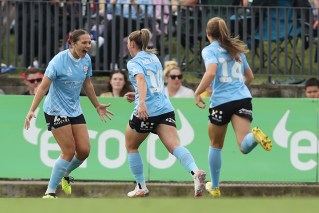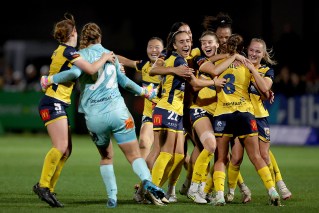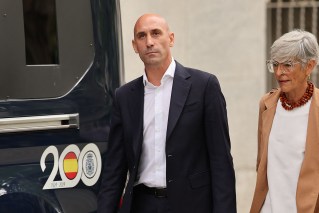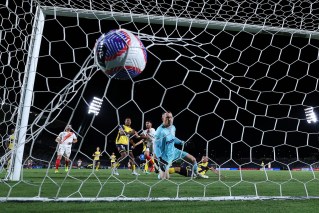Abbas affair shows A-League cannot dodge race issue
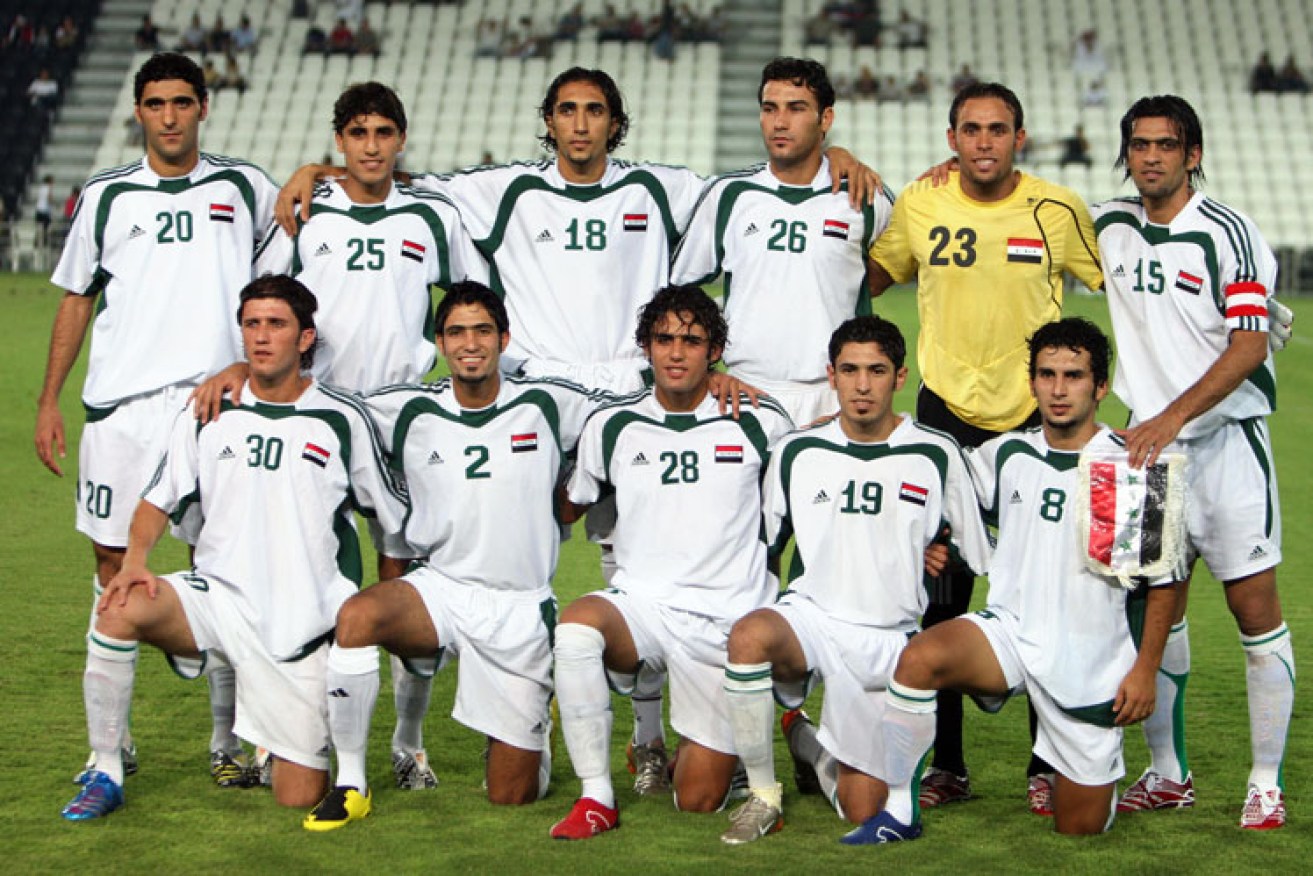
With the Iraqi Olympic team (front row, second from right). Picture: Getty
The alleged racial and cultural vilification of Sydney FC’s Iraqi midfielder Ali Abbas is a reminder to the FFA that, try as it might, issues of ethnicity, race and culture cannot be truly excised from any aspect of life.
The incident, involving a Western Sydney Wanderers player, is the first openly reported on field racial slur in the A-League and for some may signify a watershed moment for football.
However, given football has it roots deeply bound in much of our nation’s multicultural history it may only be an addition to a complex past.
In fact, the inherent varied ethnicity of much of Australia’s football community was rejected in 2005 when the A-League was set up to cleanse the NSL of clubs with racial ties. The FFA, led by Frank Lowy, essentially attempted to take ethnicity out of the game.
What is significant is how the focus has shifted from the media-hyped intra ethnic tension of the NSL and previous competitions to the singling out of an ethnic minority.

Teammate Sasa Ognenovski tries to reassure Abbas. Picture: Getty
The way the game is portrayed is of vital importance at FFA headquarters and is a major reason as to why the A-League was set up free of ethnic links.
We are forced to ask why it took until 2:30pm the next day for the FFA to comment on the matter.
The FFA has tried to keep this friendly image in mind by initiating Round 21’s ‘Erase Racism’ campaign, for which Abbas was one of the faces.
However only a week later we are forced to ask why it took until 2:30pm the next day for the FFA to comment on the matter, only doing so once Sydney FC had lodged an official complaint.
The alleged incident occurred in what was arguably the biggest game of the season thus far, the Sydney Derby, with more than 40,000 spectators and a large television audience.
Should there have been an instant acknowledgement from the FFA about the problem?
David Gallop and the FFA may have been treading carefully by trying to verify the claims more solidly, but given Abbas’ words in his immediate post game interview the issue had been clearly established.
Given the huge stage the match was played on, some instant comment from the FFA would have been helpful.
This is in contrast to the AFL’s own recent racial bombshell involving Adam Goodes and an underage Collingwood fan, in which the AFL and Collingwood president McGuire denounced the actions immediately after the game, notwithstanding McGuire’s subsequent foot in mouth.
The complaint is now being dealt with privately under the FFA’s National Member Protection Policy.

Playing for Iraq against Qatar during Olympic qualification in 2007. Picture: Getty
That the situation has remained relatively private is good. This is also in contrast to the Goodes affair, in which everything, including the identity of the girl, was aired in the media.
Abbas took his passport early on the morning the team was due to fly back to Iraq and snuck out of the hotel to seek asylum in Australia.
If anything positive is to come out of this saga, it will be that more people become familiar with Abbas’ astounding back-story.
Abbas was one of the three Iraqi footballers who in November 2007 sought asylum in Australia after representing the under-23 national side in Gosford against the Olyroos.
Along with two teammates and the assistant coach, Abbas took his passport early on the morning the team was due to fly back to Iraq and snuck out of the hotel to seek asylum in Australia.
Remarkably Abbas had only months earlier been an integral part of his nation’s astonishing Asian Cup triumph, making him part of a team that became the pride of a country long torn to shreds by sectarian violence and a dictatorial leader.
In early 2008 the midfielder returned to Iraq after talks with Sydney club Marconi Stallions fell through. However in Feburary 2009 Marconi brought Abbas over from his Baghdad-based side to join the Stallions permanently.
Since then Abbas has not looked back and after 29 appearances for Marconi and 60 for Newcastle Jets, Abbas now finds himself playing for Sydney FC while also becoming Australian citizenship on Australia Day 2012.
That Sydney FC, our league and our country are home to this tale points to how multiculturalism is at the very core of football and why it needs to be protected.

With the Iraqi Olympic team (front row, second from right). Picture: Getty


